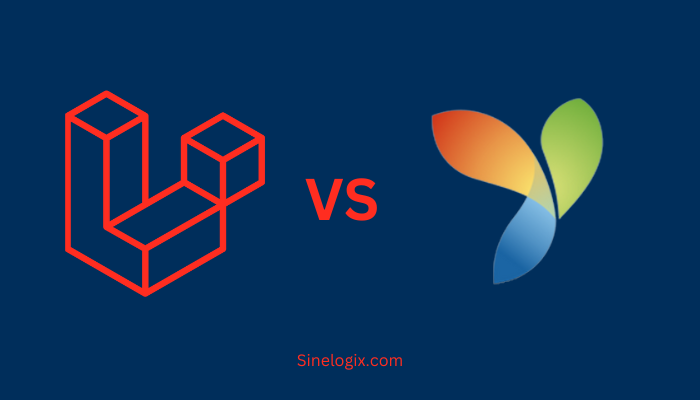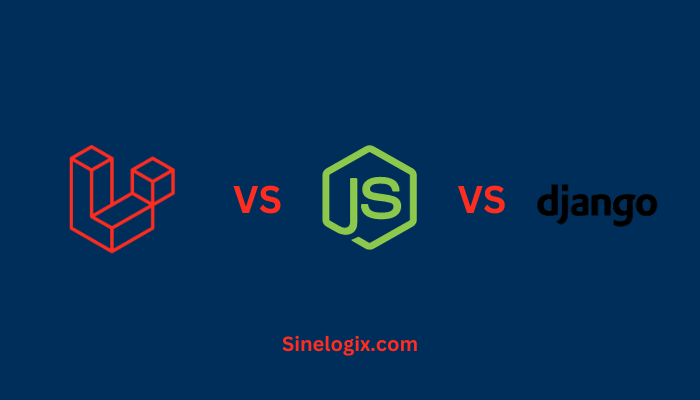Selecting the right PHP framework is a pivotal decision in web development, and two contenders often in the spotlight are Laravel and Yii. Both frameworks offer unique features, development philosophies, and cater to different needs.
This in-depth article aims to explore the intricacies of Laravel and Yii, providing an exhaustive understanding to assist developers in making well-informed decisions for their projects.
Features
Laravel and Yii are PHP frameworks with distinct approaches and feature sets.
Laravel, celebrated for its elegant syntax and developer-friendly experience, boasts a robust feature set. It includes an expressive ORM named Eloquent, a powerful template engine known as Blade, and a convenient query builder. The framework follows the convention over configuration principle, reducing the need for developers to make countless decisions.
Yii, on the other hand, stands out for its high-performance nature and efficient code generation capabilities. Yii features an advanced ORM called ActiveRecord, a potent caching system, and a scaffolding tool for rapid development. Yii embraces the Don’t Repeat Yourself (DRY) principle and provides a clean and extensible codebase.
Market Usage Statistics
Analyzing the market usage statistics of Laravel and Yii offers insights into their real-world adoption. As of the latest data, Laravel has gained widespread popularity, particularly in the startup and mid-sized project space. Its vibrant community and rich ecosystem of packages available through Composer contribute to its success.
Yii, although not as widely adopted as Laravel, has a dedicated user base. Yii’s performance-oriented approach attracts developers working on projects that require efficiency and speed.
Popularity Over the Years
Exploring the historical popularity of Laravel and Yii provides insights into their evolution and sustained relevance. Laravel has witnessed a meteoric rise in popularity since its inception, becoming one of the most sought-after PHP frameworks. Its commitment to modern development practices and a focus on developer experience contribute to its widespread adoption.
Yii, while not experiencing the same explosive growth as Laravel, has maintained a stable presence. Its emphasis on performance and efficiency resonates with developers seeking a framework optimized for high-speed development.
Pros and Cons of Laravel and Yii
To make informed decisions, developers must weigh the strengths and weaknesses of each framework.
Laravel’s Pros:
- Elegant syntax and developer-friendly features.
- Large and active community with extensive documentation.
- Rich ecosystem of packages available through Composer.
- Rapid application development (RAD) capabilities.
Laravel’s Cons:
- May not be as suitable for large, enterprise-level projects with complex requirements.
- Convention over configuration may limit flexibility in certain scenarios.
Yii’s Pros:
- High performance and efficiency.
- Code generation capabilities for rapid development.
- Clean and extensible codebase.
- Integrated tools for caching and error handling.
Yii’s Cons:
- Smaller community compared to Laravel.
- Less emphasis on convention over configuration may require more explicit configurations.
Applications
Understanding the applications of Laravel and Yii is crucial for choosing the right framework for a given project.
Laravel Applications:
- Content management systems (CMS).
- E-commerce platforms.
- Small to medium-sized web applications.
- Projects where rapid development is a priority.
Yii Applications:
- Projects requiring high performance and efficiency.
- Rapid development with the help of code generation.
- Applications where a clean and extensible codebase is essential.
Laravel Vs Yii: A Detailed Comparison
Similarities and Differences of Laravel and Yii
While Laravel and Yii share some commonalities as PHP frameworks, they differ in their design philosophies and approaches.
Similarities:
- Both frameworks follow the MVC architecture.
- Use Composer for package management.
- Have active communities contributing to their ecosystems.
Differences:
- Laravel emphasizes simplicity and ease of use, employing convention over configuration.
- Yii prioritizes performance and efficiency, offering code generation capabilities for rapid development.
- Laravel’s expressive syntax appeals to developers seeking a streamlined experience.
- Yii’s integrated tools for caching and error handling contribute to its performance-oriented approach.
Laravel Vs Yii: Which Should You Choose?
Choosing between Laravel and Yii depends on the specific requirements of a project, the development team’s expertise, and the development goals.
Laravel is Ideal for:
- Rapid application development.
- Startups and smaller teams.
- Projects where convention over configuration is an advantage.
Yii is Ideal for:
- High-performance applications.
- Rapid development with code generation.
- Developers seeking a clean and extensible codebase.
Alternatives of Laravel and Yii
While Laravel and Yii are popular PHP frameworks, exploring alternatives can help developers find the right fit for specific projects.
Symfony:
- Suitable for large-scale projects with a modular and flexible architecture.
- Ideal for developers comfortable with a configuration-centric approach.
CodeIgniter:
- Known for its simplicity and small footprint.
- Suitable for small to medium-sized projects with straightforward requirements.
Zend Framework:
- Offers a collection of professional PHP packages.
- Suitable for large-scale projects with complex requirements.
Related Articles:
Conclusion
In conclusion, the choice between Laravel and Yii is a nuanced decision requiring careful consideration of various factors. Both frameworks have their strengths and weaknesses, and the right choice depends on the specific needs of the project.
Laravel excels in rapid application development and is well-suited for startups and smaller teams. Yii, with its high-performance nature and code generation capabilities, is an excellent choice for projects prioritizing efficiency and speed.




